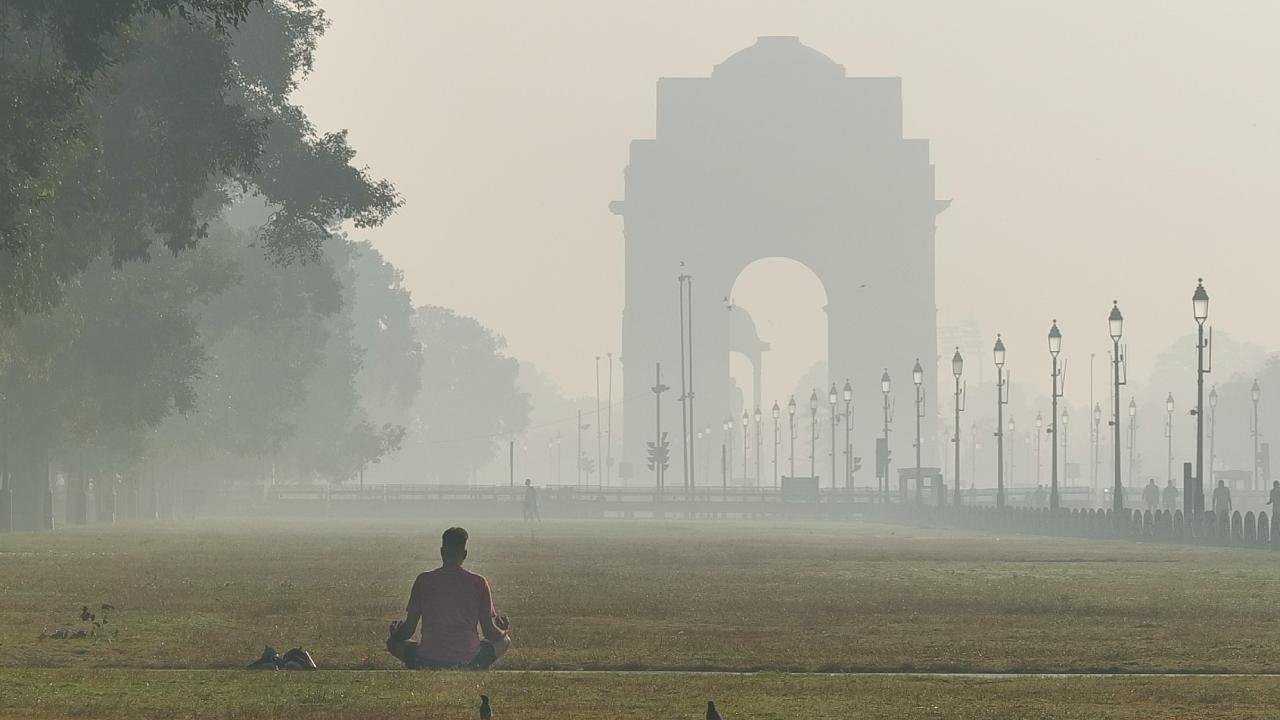The national capital on Saturday recorded an average Air Quality Index (AQI) of 335 at 9 am placing Delhi in the `red zone` and making it the most polluted city in the country, according to data from the Central Pollution Control Board (CPCB).
AQI at India Gate was 322. In the Palam area, the AQI recorded was 320, while in Dhaula Kuan AQI reported was 269.
PM2.5 remained the key pollutant on Saturday. Since Diwali, the national capital`s air quality has been either `poor` or `very poor`, occasionally worsening to `severe`.
Delhi`s temperatures continued to dip, with the mercury settling at 11 degrees Celsius, three notches below the seasonal average.
The city recorded a maximum temperature of 28.6 degrees Celsius, 0.9 degrees below normal, according to the India Meteorological Department (IMD).
In comparison, the city had recorded minimum temperatures of 9.5 degrees Celsius on October 29 last year, 9.2 degrees Celsius on October 23 in 2023, and 7.3 degrees Celsius on October 29 in 2022, indicating a slightly delayed onset of winter this year.
The IMD has forecast mainly clear sky for the day.
On Friday, the air quality in the national capital dipped to the `very poor` category, with Delhi`s overall Air Quality Index (AQI) standing at 312, according to the Central Pollution Control Board (CPCB).
On Thursday, Delhi`s overall AQI recorded at 8 am was 271, categorised as `poor`, according to data from the CPCB.
Since Diwali, the Air Quality Index (AQI) in Delhi and the National Capital Region (NCR) has been reeling under the `poor` and `very poor` categories in several areas, even as Stage 2 of the Graded Response Action Plan (GRAP) remains in effect.
The New Delhi Municipal Council (NDMC) has already announced the doubling of parking fees across the national capital after the Graded Response Action Plan (GRAP) Stage II was invoked due to deteriorating air quality.
An AQI between 0 and 50 is considered `good`, 51-100 `satisfactory`, 101-200 `moderate`, 201-300 `poor`, 301-400 `very poor`, and 401-500 `severe`.
Meanwhile, in view of the rising air pollution in the capital, Chief Minister Rekha Gupta has decided to change the working hours of the offices of the Delhi Government and the Delhi Municipal Corporation.
This decision has been taken as a precautionary measure to prevent pollution, ensuring that the pressure of vehicles on the roads does not increase all at once and the traffic load is evenly distributed, thereby reducing pollution levels, according to the release.
(With inputs from Agencies)

